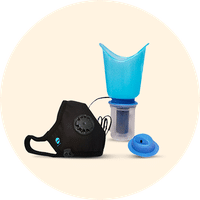food interaction for Caldikind
alcohol interaction for Caldikind
pregnancy interaction for Caldikind
lactation interaction for Caldikind
food
alcohol
pregnancy
lactation
Caldikind Capsule may be taken with or without food, but it is better to take it at a fixed time.
None
None
CAUTION
It is unsafe to consume alcohol with Caldikind Capsule.
UNSAFE
Information regarding the use of Caldikind Capsule during pregnancy is not available. Please consult your doctor.
CONSULT YOUR DOCTOR
Information regarding the use of Caldikind Capsule during breastfeeding is not available. Please consult your doctor.
CONSULT YOUR DOCTOR
SALT INFORMATION FOR Caldikind
Calcitriol(0.25mcg)
Uses
Calcitriol is used in the treatment of post menopausal osteoporosis and calcium deficiency.
How it works
Calcitriol is the active form of Vitamin D. It raises Vitamin D levels in your blood. This in turn raises calcium levels in your blood by helping you absorb more calcium from your intestine.
Common side effects
Headache, Nausea, Abdominal pain, Vomiting, Weight loss, Increased calcium level in blood, Rash, Urinary tract infection, Itching, Erythema (skin redness), Decreased appetite, Increased creatinine level in blood, Dry skin, Worsening of psoriasis, Hypersensitivity, Feeling thirsty, Dehydration, Calcinosis cutis, Fever, Skin swelling, Contact dermatitis
Calcium Carbonate(500mg)
Uses
Calcium Carbonate is used in the treatment of nutritional deficiencies.
How it works
Calcium Carbonate provides essential nutrients.
Common side effects
Constipation, Increased calcium level in blood, Decreased phosphate level in blood, Milk-alkali syndrome, Abdominal bloating, Xerostomia, Acid reflux, Decreased appetite, Irritability, Vomiting, Nausea, Headache
Zinc Sulfate(7.5mg)
Uses
Zinc Sulfate is used in the treatment of nutritional deficiencies.
How it works
Zinc Sulfate works by raising zinc levels in your body.
Common side effects
Gastric irritation, Nausea, Vomiting, Diarrhea, Abdominal pain, Dyspepsia, Irritability, Gastritis, Headache, Lethargy
SUBSTITUTES FOR Caldikind
4 Substitutes
4 Substitutes
Sorted By
 Rs. 380pay 134% more per Capsule
Rs. 380pay 134% more per Capsule Rs. 172pay 58% more per Capsule
Rs. 172pay 58% more per Capsule Rs. 231pay 114% more per Capsule
Rs. 231pay 114% more per Capsule Rs. 215pay 39% more per Capsule
Rs. 215pay 39% more per Capsule
Expert advice FOR Caldikind
- Do not take any other forms of Vitamin D unless your doctor suggests.
- Take calcium supplements along with Vitamin D3 as suggested by your doctor.
- Drink plenty of fluids (such as water) as it is important not to become dehydrated.
- Avoid using antacids without your doctor's advice. Some antacids can make it harder for your body to absorb calcitriol.
- Consult your doctor if you notice a metallic taste in mouth, muscle or joint pain, headache or drowziness.
Frequently asked questions FOR Caldikind
Calcitriol
Q. What is Calcitriol? What is it used for?
Calcitriol is the active form of Vitamin D. It increases the levels of Vitamin D in your blood which helps to increase calcium levels in the blood by increasing the absorption rate of calcium from your intestine. Thus, it is used in the treatment of calcium deficiency and postmenopausal osteoporosis.
Q. Is Calcitriol effective?
Calcitriol is effective if used in the dose and duration advised by your doctor. Do not stop taking it even if you see improvement in your condition. If you stop using Calcitriol too early, the symptoms may return or worsen.
Q. How should Calcitriol be taken?
Calcitriol should be taken in the dose and duration advised by your doctor. It can be taken with or without food. However, it would be best to take it at the same time each day to avoid the chances of missing a dose.
Calcium Carbonate
Q. What is supracal/shelcal 500/cipcal 500?
Shelcal, supracal, cipcal contain calcium carbonate along with vitamin D3
Q. What is it used for?
These preparations are used as a calcium supplements
Q. Is calcium carbonate/shelcal 500 chewable?
Yes, however it depends on dosage form available. If it is an oral tablet it has to be swallowed



















